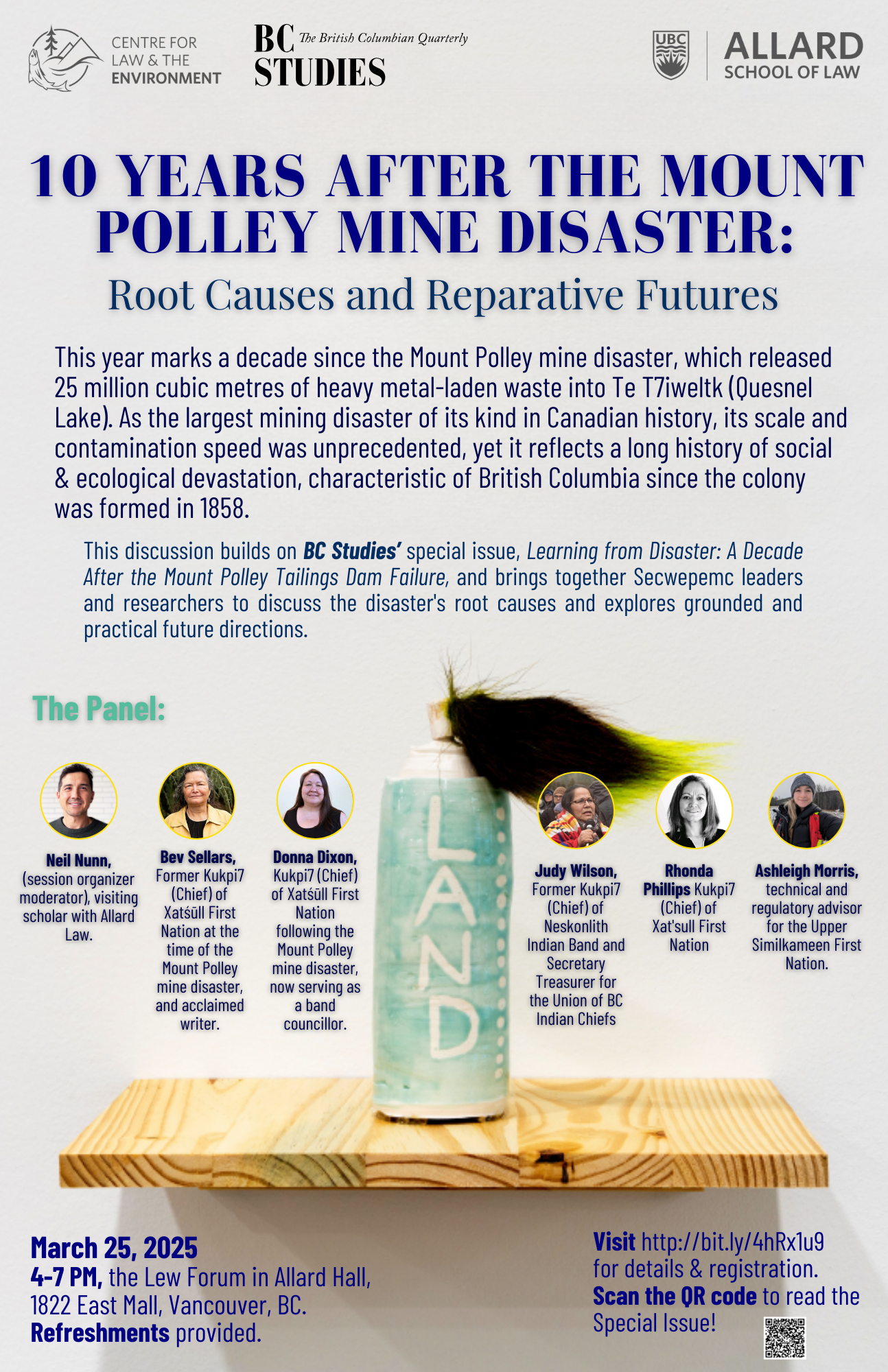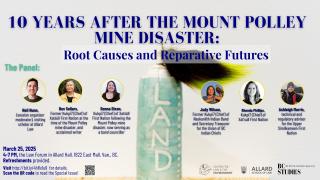Event Description
This year marks a decade since the Mount Polley mine disaster, that released 25-million-cubic-metres of heavy metal-laden waste into Te T7iweltk (Quesnel Lake). While the disaster was unprecedented in its scale and speed of contamination—recognized as largest mining disaster of its kind in Canadian history—this catastrophe is tied to longer pattern of social and ecological devastation that have been characteristic of British Columbia since the colony was formed in 1858.
This discussion was a continuation of a conversation that began in BC Studies Special Issue entitled “Learning from Disaster: A Decade After the Mount Polley Tailings Dam Failure.” We had the honour of gathering and learning from voices of leaders, knowledge holders, and those who work at the forefront of resisting reckless approaches to mining in the region.
The questions that guided this session were:
- What are the root causes of this ongoing problem?
- How have similar patterns persisted since the disaster even while BC regulators and industry applaud the response to the disaster?
- What are meaningful paths forward to addressing these issues?
The Panel
Bev Sellars: Kukpi7 (Chief) of Xatśūll First Nation at the time of the Mount Polley mine disaster, and acclaimed writer.
Kukpi7 (Chief) Rhonda Phillips: Chief of Xatśūll First Nation.
Judy Wilson: Former Kukpi7 (Chief) of Neskonlith Indian Band and Secretary Treasurer for the Union of BC Indian Chiefs.
Ashleigh Morris: Technical and regulatory advisor for the Upper Similkameen First Nation in relation to Copper Mountain mine and a mine expansion at akɬsxúsm.
Neil Nunn (Session Organizer Moderator): Visiting scholar with Allard Law and is currently completing a book on the 2014 Mount Polley mine disaster with UBC Press.
Kukpi7 (Chief) Donna Dixon: Chief of Xatśūll First Nation following the Mount Polley mine disaster, now serving as a band councillor.

- Centre for Law and the Environment
- General Public
- All Students
- Alumni
- Faculty
- Graduate Students
- JD
- Staff
- Research Talks
